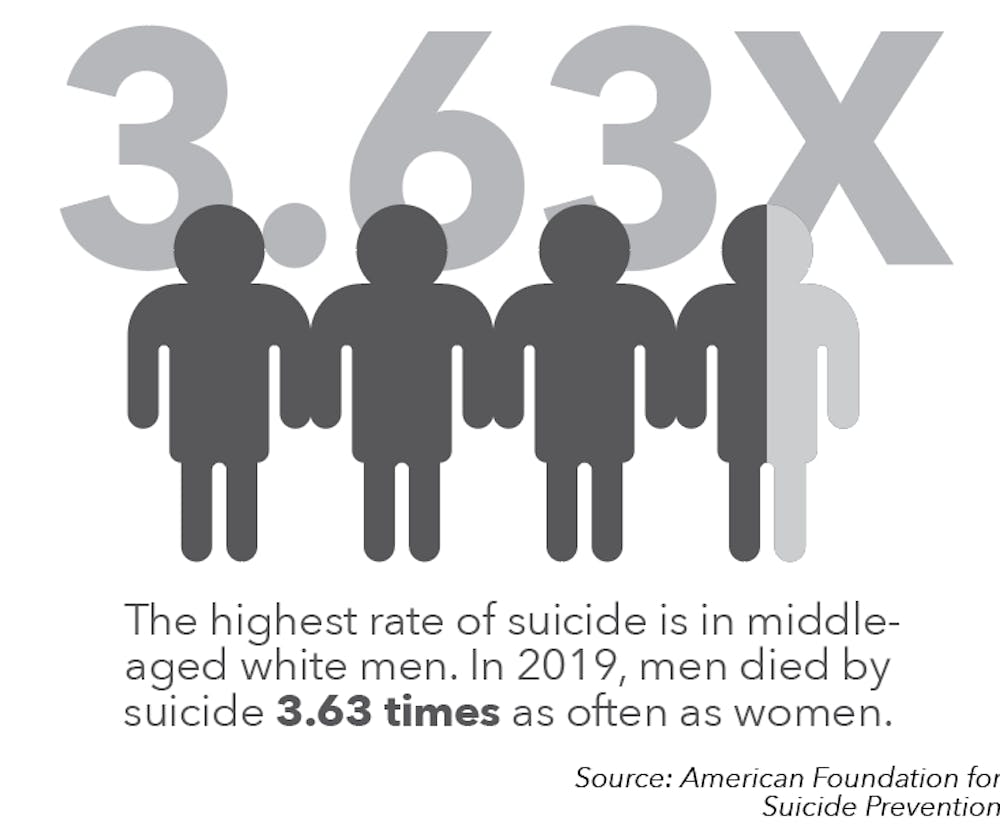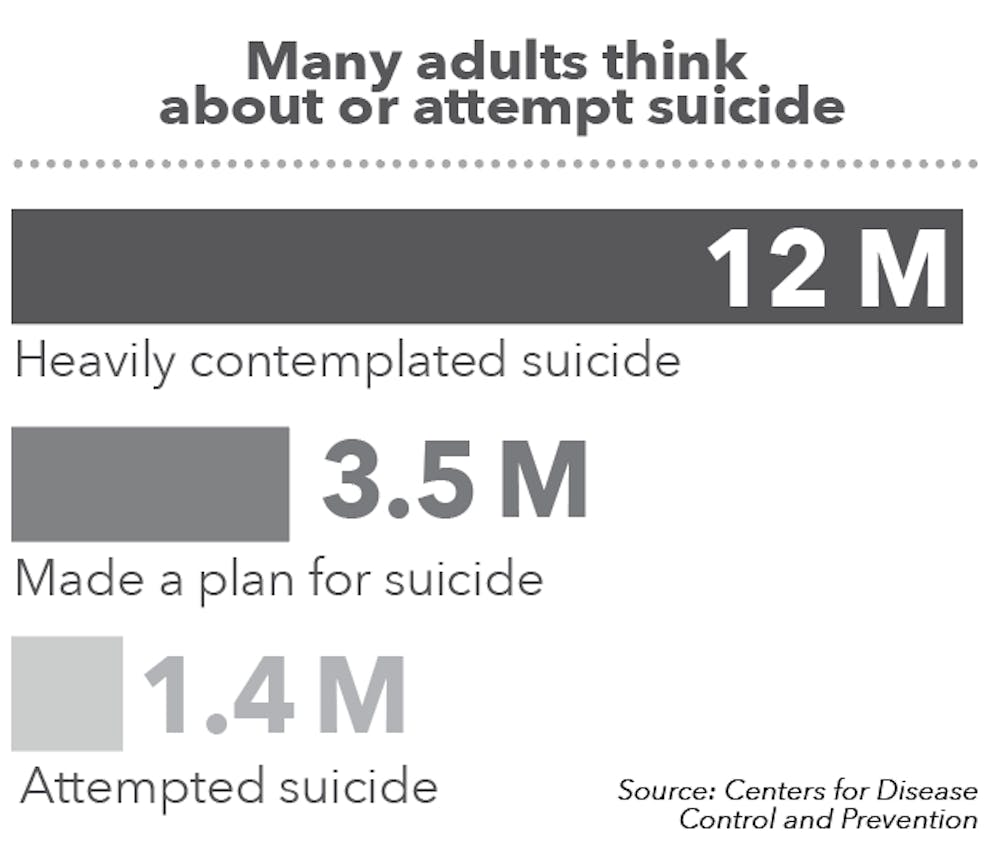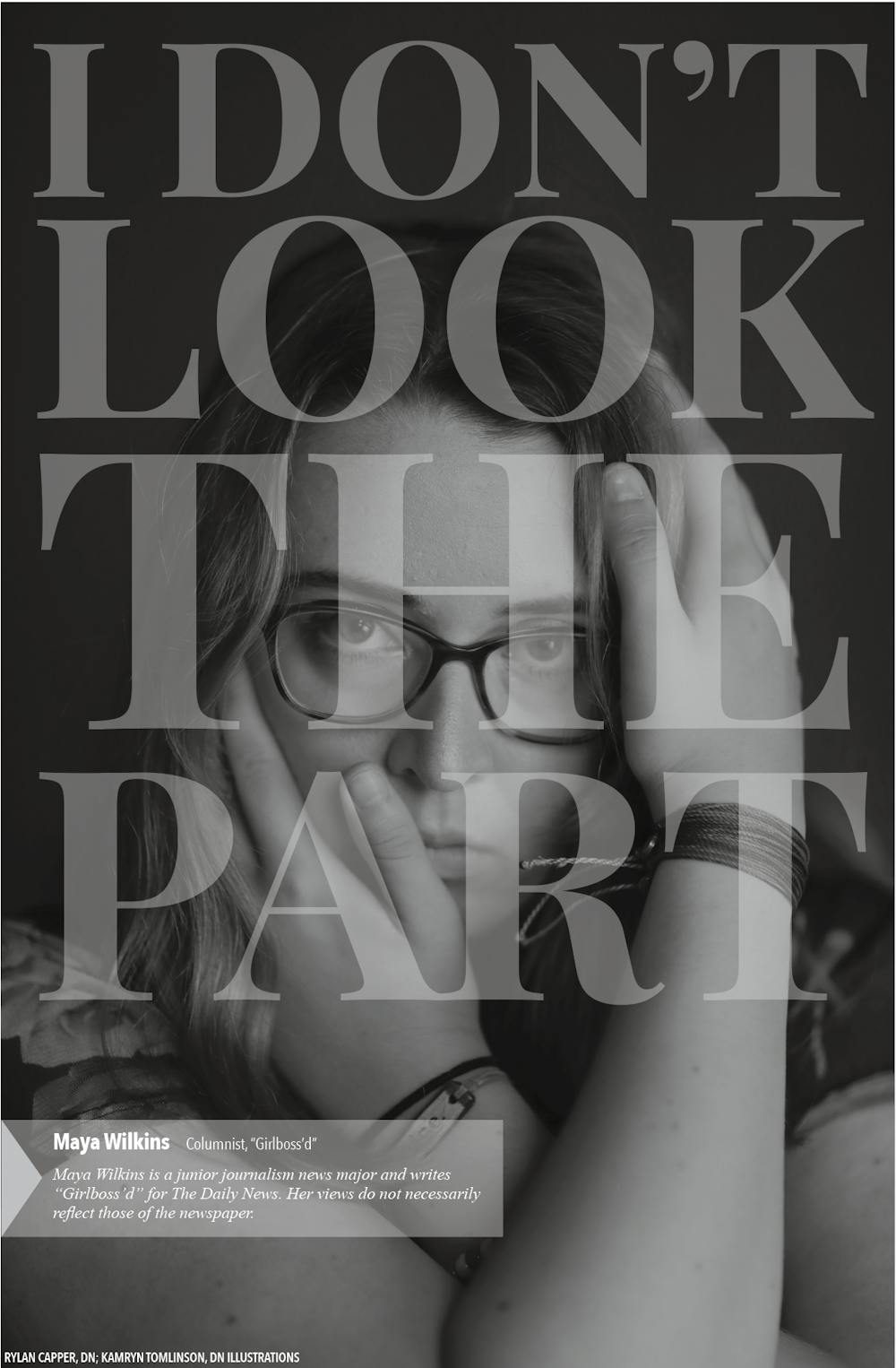No matter what you are feeling, help is available.
National Suicide Prevention Hotline: (800) 273-8255
Ball State Counseling Center: (765) 285-1736
University Police Department: (765) 285-1111
Maya Wilkins is a junior journalism news major and writes “Girlboss’d” for The Daily News. Her views do not necessarily reflect those of the newspaper.
I don’t look the part.
You can’t see the countless nights I’ve sat awake crying because my thoughts tell me my life is useless. You haven’t seen the journals I’ve filled, wishing things would get better when they seem to only get worse. You haven’t been a part of the internal struggle I’ve gone through since I was 11.
I don’t look like someone who has contemplated suicide. My positive personality and drive to succeed distract people from the years of pain comments about my height, weight, upbringing and personality have caused me.
I don’t look the part.
I’ve been told my thoughts are invalid, that there’s no way I can actually feel this way. I remember I was first told this when I was 11 years old and asked my best friend why I was constantly sad. She said I needed to grow up and think about people who were “actually struggling.”
When I open up, I’ve been told I’m too dramatic, I need to “toughen up” or I don’t understand just how good my life is.
I completely understand my life is easier than most — I have parents who love each other, I received a quality education, I grew up in a home where I was always reminded I was loved and have always had at least a few close friends.
But I still tell myself that nothing I do will live up to others’ standards. I tell myself I will never be enough. I still struggle.
According to the World Health Organization, more than 700,000 people die by suicide each year — one life every 40 seconds. And, for every adult who died by suicide, there may have been 20 more who attempted suicide who are unaccounted for.

Kamryn Tomlinson, DN Illustration
This doesn’t even include the statistics for children, where suicide is the second-leading cause of death. That was before the COVID-19 pandemic, too, a time when people were isolated in their homes and trapped with their own thoughts.
How many of those people didn’t “look suicidal”?
How many of those people were told they can’t be depressed because their life is so good?
How many of those people didn’t look the part?
Our lives are like icebergs — people can only see what is on the surface but not what hides deeper down. I don’t know what someone else’s thoughts are, and they don’t know what mine are. Without asking, we don’t know anything about what others go through.
However, due to our dependence on social media, people feel the need to judge and comment more based on what they see at the surface level. While I love Instagram and Twitter, I do know just how toxic it can be for me.
If I see someone from high school posting about how great college is for them, I compare it to my experience. When one of my friends posts about an amazing opportunity they got, I question why I’m not trying hard enough for the same one. If I see my sisters post about going on trips and making memories without me, I feel sad about having to leave them.
I don’t know why I feel the need to compare myself to everyone or why I feel the need to make everyone happy, but whenever I see these posts, those negative thoughts and feelings come back, telling me I’ll never live up to expectations. It’s all based on a surface-level environment that’s handcrafted.
The time I felt this most was during my first semester of freshman year, particularly the end of October to the beginning of November 2020. Starting college during a pandemic wasn’t easy, and every day I felt like I was missing out on a “college experience.”
I was feeling lost within my major and wasn’t writing as much as I had hoped. I had friends but almost always felt out of place within the group. My classes weren’t meeting in person, so it was hard for me to stay focused and challenged.

Kamryn Tomlinson, DN Illustration
I would see people from colleges across the country making the most of their experiences despite the pandemic, and I would feel like I was doing something wrong. All those negative thoughts I had about myself came back.
I constantly tore myself down and told myself I was not and never would be enough.
You wouldn’t have been able to tell by looking at me.
I showed up to my minimal in-person classes and participated. I was interactive on Facebook pages trying to make friends. I began writing for The Daily News just to tell myself I was doing something with my life.
No one saw the nights I walked around campus by myself until 2 a.m. because the thoughts inside my head were too distracting to be with other people. Or the times I would cry after talking to my dad every Sunday because I would lie to him and tell him I was happy. I’m the only one who has read my journals and seen the horrible words I called myself.
I didn’t look the part then, and I still don’t look the part now.
I do whatever I can to suppress this part of myself, to make everyone think I’m perfectly fine. I hate letting people down, and I feel like showing this part of myself would only disappoint.
But I’m tired of living this way, and I’m tired of people not thinking I look like I struggle.
We can’t assume everyone is fine depending on how they carry themselves or what we know about them on the surface level.
No one has to look the part — no one has to suppress parts of themselves to please other people. We’re human. We make mistakes, we get jealous, we have our faults. I will be the first to say I need to change and stop comparing myself to others, but some days it’s really hard.
I don’t have everything figured out, and I don’t think anyone has everything figured out, especially in college. We’re all going to need a little extra help sometimes, and it’s completely OK to reach out and ask.
You never know what someone is going through, no matter how much they seem to have it together.
No one has to look the part.
Contact Maya Wilkins with comments at mrwilkins@bsu.edu or on Twitter @mayawilkinss.





